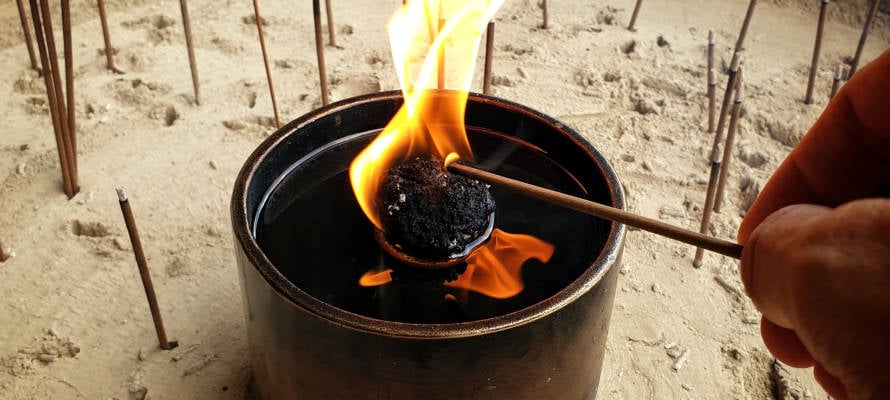We all have the potential to become holy. We just have to remember that we need earn it ourselves; there’s no special pill or oil to make it happen.
By Rabbi Ari Enkin, Rabbinic Director, United with Israel
This week’s Torah portion is “Ki Tisa” (Exodus 30:11–34:35), and is it ever action packed! While the primary theme of the reading is the infamous story of the sin of the Golden Calf, I would like to discuss a more minor episode in the reading, namely, the manufacture and the use of the holy anointing oil.
The anointing oil was used to anoint (hence its name!) Aaron and his sons, and the vessels of the sanctuary. This anointing ceremony sanctified whoever, whatever, and wherever the oil was placed and made them eligible for use in the sanctuary. As the verse says, ‘This shall be for Me an oil of sacred anointing for all your generations.’ (Exodus 30:30)
We are told that the anointing oil that was used by Moses to anoint Aaron was hidden and will be revealed again when the Messiah comes (as per “for all your generations”). It will then be used to anoint the priests and vessels in the third (and final) Holy Temple.
How can that be? Will the same oil that was made by Moses 4,000 years ago suddenly re-appear in the Messianic era? Furthermore, we are told that Moses made a very small amount of anointing oil. How could there be enough for the anointing that would be done throughout history? Finding oil? Enough oil? Oil not consumed? Sounds like another Chanuka miracle!
It is explained that indeed, the oil that was and will be used for the anointing was not consumed. Yes, it was a miracle. There was never a depletion of oil from the flask even after the needed drops were poured out for anointing. Sounds even greater than the Chanukah miracle! This is because the Chanuka miracle was that a small amount of oil lasted for eight days, but here the miracle is that the oil will last forever!
We learn from here that the priests who were anointed were not truly made holy by virtue of the oil. If it was the holiness of the oil that was making the priests (or the vessels) holy, then it would follow that the oil would have to be consumed and absorbed into whatever or whomever was being anointed. But, as mentioned, it was not consumed and it was not absorbed…because it wasn’t the oil that made the priests holy. They made themselves holy! The oil was merely the symbol, the inspiration. This is why the oil could not be consumed: we didnt want to give it the credit for sanctifying the priests!
There is no such thing in Judaism as magic fixes and instant holiness. Change comes from within. But sometimes, we need an external trigger, a motivation, a spark. And that’s what the oil was.
So whether it’s the High Priest, or it’s you and me, we all have the potential to become holy. We just have to remember that we need to do it ourselves; there’s no pill to take or oil to drink. And even more important, WE should be the “anointing oil” that ignites that spark of inspiration in others!
For more insights by Rabbi Enkin on this week’s Torah portion, click on the links below.
https://unitedwithisrael.org/living-torah-the-lesson-of-the-golden-calf/
https://unitedwithisrael.org/living-torah-was-aaron-guilty-of-the-sin-of-the-golden-calf/
https://unitedwithisrael.org/living-torah-the-secret-to-the-sweet-scent-of-success/
https://unitedwithisrael.org/living-torah-discover-your-inspiration-and-run-with-it/
https://unitedwithisrael.org/living-torah-never-chase-after-glory/
